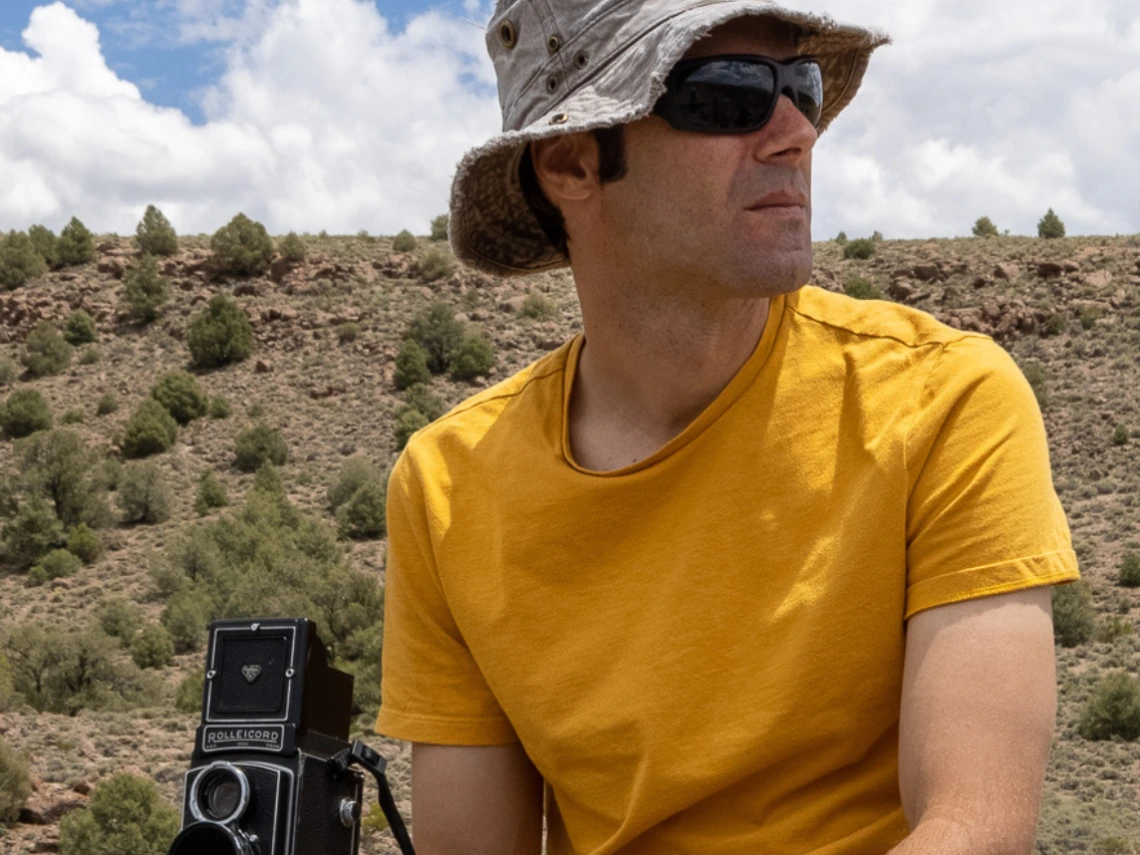Aengus Anderson was guest panelist for Law Library's 'Lives in the Law' discussion

Photo by David Anderson
On Nov. 18, University Libraries Oral Historian and Digital Media Producer Aengus Anderson was a guest panelist of "Lives in the Law," the Daniel F. Cracchiolo Law Library's newly accessible oral history collection detailing what life after law school looks like from those who entered the legal profession. Additional panelists were Toni M. Massaro, Dean Emerita and Regents Professor of Law, University of Arizona James E. Rogers College of Law; and Berlin Loa, Associate Professor of Practice and Knowledge River Program Manager, University of Arizona College of Information Science. Discussion moderator was Law Library Archivist Jaime Valenzuela.
Anderson works in Marketing Communications, which is part of Library Administration. He produces Archive Tucson, an ever-growing collection of local oral histories for which he has spent more than five years interviewing 100-plus people and recording their stories about our city. He also speaks to University of Arizona classes; consults with graduate students about oral history, radio production, podcasting, and audio recording; takes photos for the Libraries; and produces Libraries videos.
"About 10 years ago I made a video about the U of A Knowledge River Scholars Program that featured Jaime Valenzuela, who is now a Law Librarian," Anderson said. "A few years back I reconnected with Jaime during a photoshoot for the Law Library and we ended up talking about oral history. Fast forward to the present and he invited me to join his panel on oral history and the law. I have recorded oral histories with many Tucson lawyers, so it seemed like a good fit."
During the panel discussion "I was asked why I studied history at the undergrad and grad levels, the value of oral history, and practices for recording," Anderson said. "I tried to emphasize the importance of developing a sense of time, change, and contingency. Outside of the sciences, reading or documenting history are the best ways to do that."
Panelists also discussed how to interpret oral histories. "Skeptically is the short answer," Anderson said. "And why I believe oral historians and journalists have different responsibilities when it comes to seeking 'truth' in an interview. Of course, I made the case for recording audio rather than video. We're a species and society fixated on images but, when it comes to oral history, seeing someone's face for hours doesn't add much more information to the story. Instead, the camera tends to make most interviewees uncomfortable, ruining the rapport an oral historian needs and yielding a less candid and shorter interview. I think the amount of content lost by putting people under the lens is far greater than the content gained by seeing their facial expressions."
When speaking to U of A students, Anderson usually talks about oral history, radio production, and podcasting.
"I've spoken to geography students creating podcasts about transportation, architecture students who want to understand neighborhoods they might work in, sociology students, future journalists who might want to incorporate historical angles, and, of course, my fellow history nerds. I've also done a lot of one-on-one consultations with students and faculty interested in oral history; spoken to neighborhood groups about how to record oral histories; and recorded in-person for Los Descendientes, a local organization that facilitates and creates community programming to share and uplift the deep history of Tucson and its residents."
